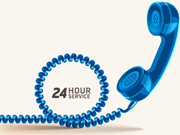
Selecting a lithium-ion battery manufacturer is a crucial decision, whether you need batteries for personal use, industrial applications,
or any other purpose. To make an informed choice, consider the following factors:
Quality and Reputation: Research the manufacturer's reputation. Look for reviews, testimonials, and any awards or
certifications they've received. A manufacturer with a strong track record for producing high-quality lithium-ion batteries
is a good choice.
Battery Chemistry:Lithium-ion batteries come in various chemistries, each with its own advantages
and disadvantages. Ensure the manufacturer offers the specific chemistry that suits your needs,
whether it's lithium-cobalt oxide (LiCoO2), lithium-iron phosphate (LiFePO4), or another type.
Customization: Depending on your requirements, you may need customized battery solutions. Choose a manufacturer
that can tailor the battery design, capacity, and form factor to your specifications.
Certifications: Verify if the manufacturer complies with industry standards and holds certifications like ISO 9001 or ISO
14001. Such certifications reflect a commitment to quality and environmental responsibility.
Price and Cost: Price is a critical factor, but it shouldn't be the sole determinant. Compare prices among manufacturers,
but also assess the overall value, including factors like longevity and performance.
Production Capacity: Ensure the manufacturer has the production capacity to meet your demand. Some projects require
large quantities of batteries, and you need a manufacturer capable of delivering on time.
Lead Times: Inquire about the lead times for battery production and delivery. Delays can disrupt your project or business
operations, so choose a manufacturer with reasonable lead times.
Warranty and Support: Review the manufacturer's warranty policies. A strong warranty reflects confidence in the product's
durability. Also, assess the level of customer support and technical assistance available.
Environmental Practices: Sustainable and eco-friendly manufacturing practices are increasingly important. Check if the
manufacturer follows responsible recycling and disposal methods for battery production.
Location: The manufacturer's location can impact shipping costs and lead times. Consider whether a local manufacturer
or one with a global presence better serves your needs.
Safety Standards: Lithium-ion batteries can be hazardous if not manufactured correctly. Ensure that the manufacturer
adheres to safety standards to prevent safety issues.
Testing and Quality Control: Inquire about the manufacturer's testing and quality control processes. Rigorous testing
ensures that the batteries meet their specified performance and safety standards.
References and Case Studies: Ask for references or case studies of projects they've completed. This can provide insights
into their past performance and the types of projects they've worked on.
Communication: Effective communication with the manufacturer is crucial. Choose a company that is responsive and
transparent, as this will make troubleshooting and project coordination much smoother.
Longevity and Stability: Consider the manufacturer's stability and longevity in the industry. A well-established
manufacturer is more likely to provide consistent quality and support over time.
By carefully evaluating these factors, you can select a lithium-ion battery manufacturer that aligns with your specific
requirements and ensures you receive high-quality, reliable batteries for your intended purpose.

18650 Battery 3.7V 2600mAh Wholesale Lithium Ion Battery 500 times cycle life

18650 Li-Ion Battery 14.8V 2600mAh Lithium Ion Battery Pack with BMS

AS18500 Battery 14.8v 2000mAh Lithium-Ion Battery Pack China Manufacturer Price

Rechargeable Li-Ion Battery Packs Supplier 18650 7.4v 2000mAh UL2054 Certification
Email:aspowercell@szaspower.com
